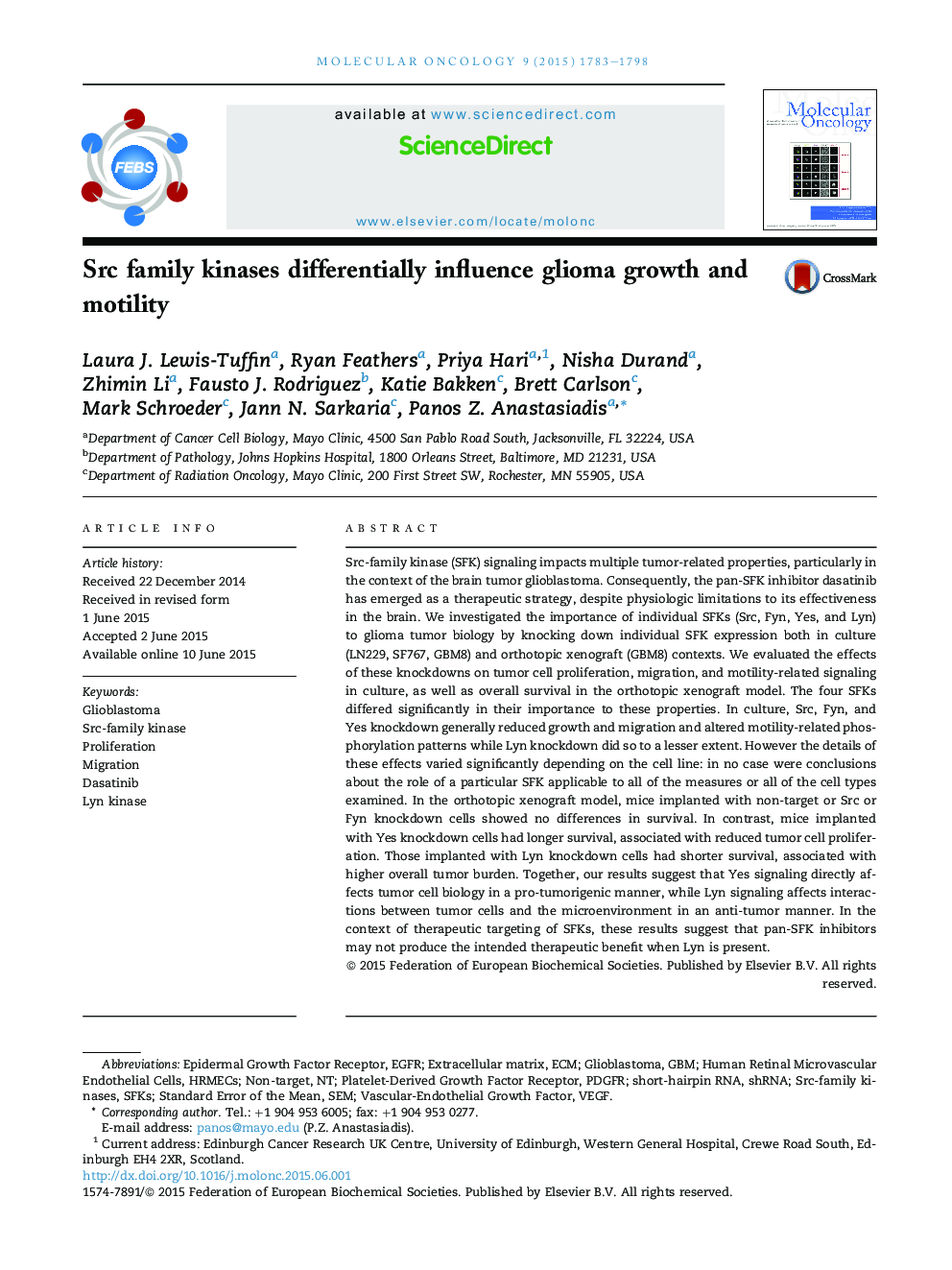| Article ID | Journal | Published Year | Pages | File Type |
|---|---|---|---|---|
| 2145598 | Molecular Oncology | 2015 | 16 Pages |
•The function of Src, Fyn, Yes, and Lyn was examined in several glioma cell lines.•They differentially affected proliferation and migration in culture and in vivo.•Src and Fyn depletion did not affect survival in an orthotopic xenograft model.•Yes depletion prolonged survival in the orthotopic xenograft context.•Lyn depletion reduced survival in the orthotopic xenograft context.
Src-family kinase (SFK) signaling impacts multiple tumor-related properties, particularly in the context of the brain tumor glioblastoma. Consequently, the pan-SFK inhibitor dasatinib has emerged as a therapeutic strategy, despite physiologic limitations to its effectiveness in the brain. We investigated the importance of individual SFKs (Src, Fyn, Yes, and Lyn) to glioma tumor biology by knocking down individual SFK expression both in culture (LN229, SF767, GBM8) and orthotopic xenograft (GBM8) contexts. We evaluated the effects of these knockdowns on tumor cell proliferation, migration, and motility-related signaling in culture, as well as overall survival in the orthotopic xenograft model. The four SFKs differed significantly in their importance to these properties. In culture, Src, Fyn, and Yes knockdown generally reduced growth and migration and altered motility-related phosphorylation patterns while Lyn knockdown did so to a lesser extent. However the details of these effects varied significantly depending on the cell line: in no case were conclusions about the role of a particular SFK applicable to all of the measures or all of the cell types examined. In the orthotopic xenograft model, mice implanted with non-target or Src or Fyn knockdown cells showed no differences in survival. In contrast, mice implanted with Yes knockdown cells had longer survival, associated with reduced tumor cell proliferation. Those implanted with Lyn knockdown cells had shorter survival, associated with higher overall tumor burden. Together, our results suggest that Yes signaling directly affects tumor cell biology in a pro-tumorigenic manner, while Lyn signaling affects interactions between tumor cells and the microenvironment in an anti-tumor manner. In the context of therapeutic targeting of SFKs, these results suggest that pan-SFK inhibitors may not produce the intended therapeutic benefit when Lyn is present.
